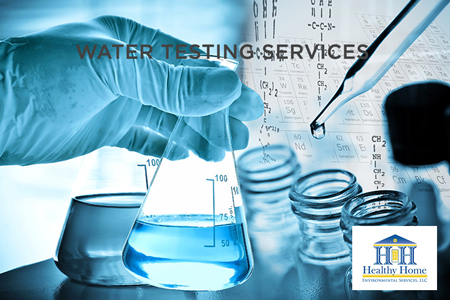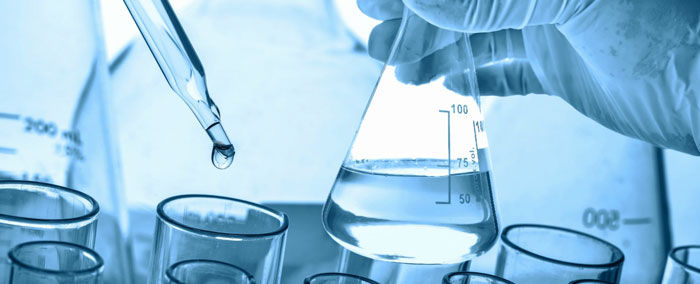Learn Exactly How Water Screening Can Discover Contaminants and Secure Your Family's Health
Recognizing the relevance of water testing is vital for protecting your family's wellness, as our water can harbor hidden threats. From microorganisms to hefty metals, contaminants posture severe risks, often undetectable without proper evaluation. By exploring the auto mechanics of water testing, one can reveal the undetectable dangers prowling in apparently beautiful water resources. Exactly how do you determine which tests are necessary for your family, and what steps should be taken once possible dangers are exposed? As we browse these inquiries, the path to guaranteeing water safety and a much healthier living atmosphere becomes clearer.
Relevance of Water Evaluating
Recognizing the crucial function water plays in maintaining life, the significance of water testing can not be overstated. Water is a basic resource, necessary for alcohol consumption, food preparation, cleanliness, and numerous commercial processes. Its top quality straight influences public health and wellness and wellness. Guaranteeing that water is cost-free from damaging compounds is crucial for preserving healthy areas and environments.
Water screening acts as a proactive procedure to identify potential hazards that may endanger water quality. Through systematic analysis, it assists detect physical, chemical, and biological parameters that could posture dangers to human wellness. Regular testing enables the early detection of issues, assisting in timely treatments to protect against widespread contamination and associated illness.
Furthermore, water testing supports regulatory conformity, ensuring that water suppliers meet well established safety standards and guidelines set by governmental authorities. It cultivates transparency and accountability, building public rely on the water system system. In addition, screening offers valuable information that educates water monitoring methods, enabling sustainable usage and preservation of this precious source.
In essence, water testing is an essential device that safeguards public health and wellness, ensures governing adherence, and advertises the lasting administration of water sources. Its relevance in securing both communities and people can not be ignored.
Common Water Impurities
Amongst the various aspects that can jeopardize water top quality, typical water impurities consist of a range of physical, chemical, and biological materials that posture significant risks to human wellness and the environment. Physical contaminants commonly entail debris or organic materials put on hold in water, which can influence clarity and preference.
Organic contaminants, largely microorganisms, infections, and protozoa, emerge from human and animal waste getting in water supply. Virus such as E. coli, Giardia, and Cryptosporidium are infamous for creating stomach ailments and can be particularly unsafe to children, the elderly, and those with endangered body immune systems. Nitrates and nitrites, usually coming from fertilizers, pose one more health and wellness danger, especially to infants, possibly resulting in problems like methemoglobinemia or "blue baby disorder."
Furthermore, arising contaminants, including pharmaceuticals and personal care items, have raised problems due to their perseverance and unidentified long-term effects. Comprehending these contaminants is essential for applying efficient water therapy techniques and ensuring secure drinking water.
Just How Water Testing Works
Comprehending the spectrum of impurities in water emphasizes the significance of reliable testing approaches to safeguard public health and wellness. Water testing is a methodical process developed to recognize and quantify different pollutants that could present risks to human health. This includes a collection of logical procedures that discover pollutants such as microorganisms, heavy metals, organic chemicals, and other toxins. The testing procedure typically begins with example collection from the water resource, making certain that examples are depictive and uncontaminated during the collection procedure.
Chemical screening commonly includes spectrometry or chromatography, both of which can recognize check this and gauge specific chemical substances. Furthermore, physical characteristics like pH, turbidity, and color are analyzed to give understanding into the general quality of the water.
The accurate approaches utilized in water testing rely on the details pollutants of issue and the water's planned usage. By regularly applying these strenuous testing protocols, scientists and public health and wellness authorities can ensure the safety and security and quality of water, consequently protecting neighborhoods from possible health and wellness threats.
Choosing the Right Test
How does one identify the most ideal water test for their needs? Picking the appropriate test involves understanding both the particular characteristics of the water source and the potential contaminants that may be existing. The primary step is assessing the water resource-- be it metropolitan, well, or surface area water-- as each has distinct risks. Metropolitan water may need testing for disinfectant byproducts, while well water might need testing for nitrates, germs, and hefty steels.
Following, think about current events and ecological factors. Nearby farming tasks could require this page testing for chemicals and herbicides, whereas industrial areas can need checks for chemical contaminants. In addition, any adjustments in water look, smell, or preference should prompt particular screening for common pollutants like lead, chlorine, or biological microorganisms.
Specialist water screening services offer comprehensive packages that target a wide variety of prospective pollutants. These packages commonly align with standards established by the Environmental Defense Firm (EPA) or regional health divisions. For a much more tailored strategy, speaking with a water quality specialist can supply insights right into which particular examinations are required based on local concerns and private wellness requirements, guaranteeing the defense of your house's wellness.

Maintaining Water Security

In addition to screening, correct upkeep of water systems plays a crucial function. This consists of checking and servicing plumbing systems, storage space containers, and septic tanks to stop leakages or backflow that can present impurities - Water Testing Service. Utilizing water filtering systems created to attend to specific local issues can further safeguard versus impurities, offering an additional layer of protection
Public recognition and education and learning are equally important in keeping water security. Communities should be informed concerning prospective risks related to neighborhood water sources and the necessary actions to alleviate them. Encouraging public engagement in water safety initiatives promotes a cumulative obligation that enhances total efficiency.
Ultimately, a comprehensive strategy that integrates regular testing, system upkeep, and neighborhood involvement is essential in guarding water quality. By doing so, family members can be guaranteed of clean and safe water, securing their health and wellness.

Conclusion
Routine water testing is vital for identifying pollutants such as microorganisms, hefty metals, and chemicals that present wellness risks. By examining water samples, undetected hazards can be found, ensuring the provision of secure drinking water. This positive strategy helps produce a healthier setting and facilitates notified decision-making regarding water security. Selecting suitable testing techniques and maintaining alertness in water high quality are vital action in guarding public health and making sure the wellness of all house members.
Recognizing the relevance of water testing is important for protecting your family's health, as our water supply can harbor unseen dangers.Water screening offers as a proactive step to determine potential hazards that may endanger water quality.In addition, water screening supports regulatory conformity, ensuring that water service providers meet well established safety and security requirements and guidelines established by governmental authorities. Local water could call anonymous for testing for disinfectant byproducts, while well water might require testing for nitrates, bacteria, and hefty metals.
Regular water testing is an important element in keeping the high quality of water sources, enabling prompt interventions before pollutants reach hazardous degrees.